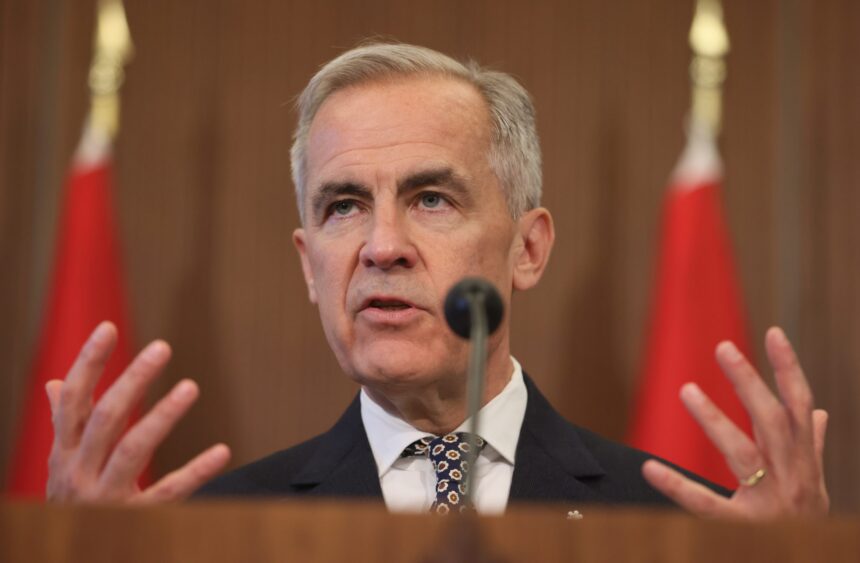I’ve spent the past three days at the House of Commons watching the final debates on Bill C-5. Yesterday’s vote wasn’t just another tick on the parliamentary calendar – it represented one of the rare moments when partisan lines blurred under the weight of economic pragmatism.
The sweeping economic package, officially titled the “Economic Resilience and National Growth Act,” cleared the House with an unusual coalition of Liberal and Conservative votes, leaving the NDP and Bloc Québécois in vocal opposition. The 187-98 vote came after weeks of marathon committee sessions and tense caucus meetings within both supporting parties.
“This bill represents what Canadians expect from Parliament – the ability to find common ground when national interests demand it,” Finance Minister Chrystia Freeland told reporters after the vote. She stood flanked by senior cabinet members, their expressions a mix of exhaustion and relief.
The legislation contains provisions that would have seemed politically impossible just months ago. It introduces a phased corporate tax reduction from 15% to 13.5% over three years while simultaneously expanding the Canada Workers Benefit by $1.8 billion. The package also includes a controversial streamlining of environmental assessments for critical infrastructure projects and a new $12 billion Canadian Innovation Fund.
Conservative support didn’t come without significant Liberal concessions. Three key amendments proposed by the Official Opposition made it into the final text – including stronger regulatory offsets and expanded tax credits for small businesses in rural communities.
Pierre Poilievre, who faced visible tension within his own caucus over supporting the bill, defended the decision as “putting practical solutions above partisan politics.” During a scrum outside the House, he emphasized the corporate tax reductions while downplaying the social spending aspects that his party had reluctantly accepted.
“We fought for and won real economic relief for job creators,” Poilievre said. “Perfect shouldn’t be the enemy of better when Canadian families are struggling to make ends meet.”
The bill’s passage wasn’t without drama. A dozen Conservative MPs broke ranks and voted against it, despite party discipline. Meanwhile, NDP Leader Jagmeet Singh delivered one of his most forceful speeches of the session, calling the legislation “a corporate giveaway disguised as economic policy.”
Singh’s frustration was palpable as he addressed supporters after the vote. “This officially ends the supply-and-confidence agreement,” he declared, referring to the arrangement that had kept the Liberal minority government stable since 2022. “Canadians deserve better than backroom deals that prioritize Bay Street over Main Street.”
The path forward in the Senate remains uncertain. Three independent Senate groups have already signaled concerns about the bill’s environmental assessment provisions. Senator Yuen Pau Woo told me the Independent Senators Group is “deeply troubled by the potential precedent” the bill sets for future resource projects.
I spoke with workers at an Ottawa construction site this morning about the legislation. Mike Therrien, a 43-year-old electrician, summarized the sentiment I’ve heard repeatedly: “Politicians are finally waking up to what’s happening on the ground. We need jobs and we need them now, not after years of red tape.”
The bill’s economic impact will ultimately determine its legacy. A Parliamentary Budget Office analysis released Tuesday estimates it could add between 0.4% and 0.7% to GDP growth over the next two years – modest but meaningful in the current low-growth environment. However, the same report warns the corporate tax cuts would increase the deficit by approximately $4.2 billion annually once fully implemented.
Professor Anita Chong, who teaches economics at Queen’s University, sees the legislation as a significant shift in Canadian economic policy. “This represents a more competitive tax stance internationally, but pairs it with targeted support for workers – essentially borrowing from both conservative and progressive playbooks,” she explained when I called her for analysis.
The Bloc’s opposition centered primarily on the bill’s centralization of power over resource development. “This is nothing less than an assault on Quebec’s jurisdiction,” Bloc leader Yves-François Blanchet said during final debate. His party’s united opposition underscores the regional tensions that continue to complicate national economic policy.
Indigenous leaders have expressed mixed reactions. The Assembly of First Nations criticized the environmental assessment changes as potentially undermining consultation requirements, while the First Nations Major Projects Coalition cautiously welcomed provisions that expand Indigenous equity participation in major infrastructure.
As the bill moves to the Senate, attention now turns to implementation timelines. Treasury Board President Anita Anand confirmed that the first tax measures could take effect as early as September, with the regulatory changes phased in over the following 12 months.
Whether this unusual political alignment represents a new era of economic cooperation or merely a temporary marriage of convenience remains to be seen. What’s clear is that both the Liberals and Conservatives have calculated that voters are more concerned with economic results than partisan purity.
Standing outside Parliament yesterday evening, watching MPs hurry to waiting cars and taxis, I couldn’t help but notice how quickly the moment of bipartisanship faded. By morning, both parties were already spinning the vote to their advantage – a reminder that in Canadian politics, pragmatic collaboration often has a short shelf life.






